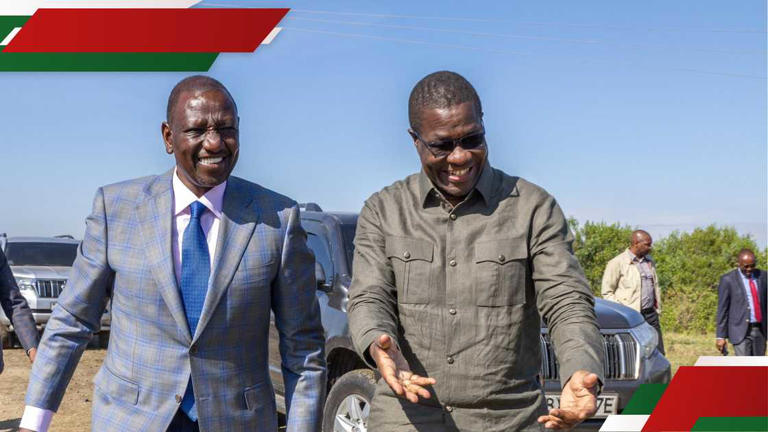Oil & Gas
KENYA TO EXIT OIL IMPORT DEAL WITH GULF COMPANIES: "DISTORTIONS IN FOREX MARKET.
JUMA SULEIMAN

In a report to the International Monetary Fund (IMF) in November 2024, Kenya's Treasury revealed that the government-to-government (G-to-G) oil import agreement with Gulf countries has not met its intended goals. The deal, initially structured as a six-month arrangement, was extended until December 2024. However, the government has acknowledged that the agreement, meant to alleviate foreign exchange (FX) pressures, has had unintended consequences, including disruptions in the oil market and a significant decline in oil demand. As a result, Kenya now plans to exit the agreement, returning to the previous open tendering system for oil imports.
The G-to-G agreement, which involved key Gulf oil exporters such as Saudi Arabia's Aramco and the Abu Dhabi National Oil Company (ADNOC), aimed to stabilize Kenya’s foreign exchange market amidst a depreciating Kenyan shilling. The deal involved the supply of diesel and petrol cargo consignments to Kenya, with Aramco providing two diesel shipments per month and ADNOC supplying three petrol shipments. Despite these efforts, the deal fell short of its targets, with the actual import volumes for the first six months not meeting the agreed-upon monthly minimums. This failure has led to a reassessment of the arrangement and a decision to seek alternatives.
Treasury officials stated that the G-to-G oil deal had contributed to significant distortions in the FX market. Moreover, the deal led to an increase in the rollover risk of private sector financing facilities supporting it. This has further complicated Kenya's economic landscape, leading the government to revert to the previous open tendering process for oil imports, which is seen as a more market-driven solution. By doing so, Kenya hopes to mitigate the negative effects on the currency and restore stability to the energy sector.
Despite criticisms, the Ministry of Energy had initially defended the G-to-G deal, arguing that it had successfully addressed liquidity challenges and helped stabilize the exchange rate. However, the higher costs of the deal, which were estimated to be over KSh 16 billion more than the previous open tender system, raised concerns. Proponents of the agreement pointed to the deal’s competitive advantages, including the lowest freight and premium costs in the region and an extended credit period of 180 days, compared to Tanzania’s 60 days. Nonetheless, given the emerging issues with the deal’s long-term sustainability, Kenya is now preparing to exit the agreement in favor of a more flexible and market-oriented approach.
